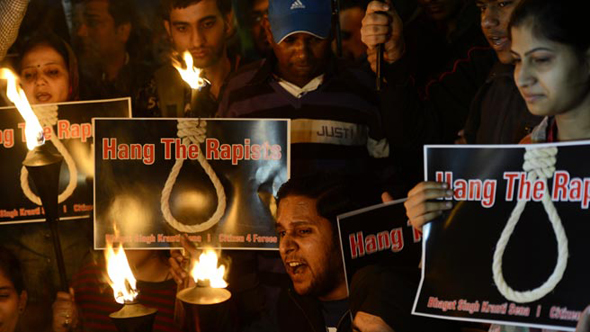
New Delhi, Mar 11: Delhi gang-rape prime accused Ram Singh on Monday committed suicide by hanging himself in Tihar Jail. Ram Singh was to be produced in the court later today for a hearing in the case.
According to Times Now, the incident took place at 5am in jail number 3 of Tihar. His body has been sent to Deen Dayal Upadhyay Hospital for postmortem.
Ram Singh, one of the six accused in the Delhi gang-rape case, was the driver of the bus in which the 23-year-old paramedical student was raped. The victim died in a Singapore hospital December 29.
Ram Singh was arrested along with his brother and four others, including a minor, hours after the crime. He and his co-accused have also faced fellow inmates' ire after being lodged into Tihar Central Jail.
Ram Singh's brother Mukesh has been informed about the incident.
Tihar Jail authorities had earlier said that all the five accused in the case were under 'suicide watch' as they had stopped talking and interacting amongst themselves.
Ram Singh's counsel had filed a petition in the Supreme Court asking the case to be shifted out side Delhi as his client is apprehensive about a fair trial.






Comments
Add new comment